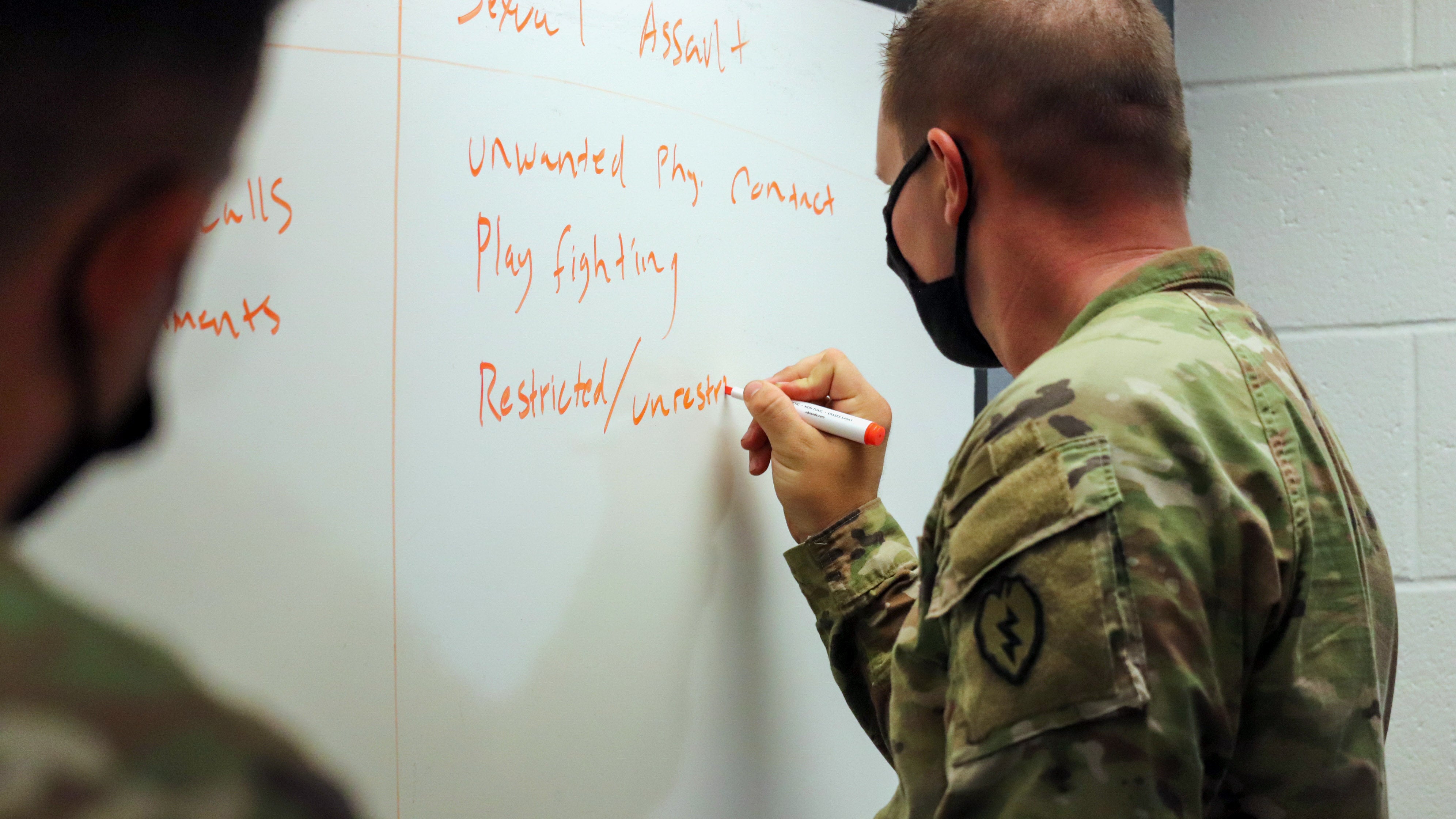Policy Extends SHARP Resources to Army Civilians
Policy Extends SHARP Resources to Army Civilians

Army civilians are now eligible to receive Army Sexual Harassment/Assault Response and Prevention services, the service announced.
The new policy, announced Sept. 17, represents a significant shift in access to SHARP resources for Army civilians. Previously, Army civilians could only qualify for limited SHARP services if they worked overseas, were deployed or were also dependents, according to an Army press release.
“Our Army civilians deserve our support if they are victims of a sexual assault,” said James Helis, director of the Army Resilience Directorate. “We ask our Army civilians to support the prevention of sexual assault, to take sexual assault training, and to intervene when they can; the very least we can do is to be by their side if they themselves are the victim of sexual assault.”
This policy change is the latest effort by the Army to eliminate sexual assault and harassment. Senior Army leaders have said it is one of their top priorities as they seek to build cohesive teams across the force.
Earlier this year, the Army announced that it will overhaul its SHARP program. On Sept. 7, Army Secretary Christine Wormuth announced that the Army will establish an office that will serve as an independent entity to oversee sexual assault cases. Part of a larger DoD effort, similar offices also will be created by each of the other services.
“We have a moral responsibility to take care of our Army family like it’s our own family,” Wormuth said recently, according to the Army.
Under the new policy, Army civilians can receive SHARP services anywhere in the world. They can talk to a sexual assault response coordinator to ask questions or learn about resources without filing a report.
Those who choose to file an unrestricted report can receive medical treatment, counseling, help from a sexual assault response coordinator or victim advocate, and an official investigation into the crime.
“Victims who make an unrestricted report of sexual assault can receive advocacy services from a SARC and a victim advocate for as long as they want instead of just while receiving emergency medical treatment while overseas,” said Jill Londagin, SHARP program director.
Proactive policies and programs could significantly reduce sexual harassment and assault, according to a Rand Corp. study published July 19.
“Bold actions should be taken, from response-focused policies and programs that address victimization and perpetration to more-proactive prevention policies and programs that promote health behaviors and force readiness,” the report says.
Advocacy services are vital, not just for survivors, but for protecting community members moving forward.
“Victims who receive advocacy services are more likely to receive medical treatment, engage with law enforcement and stay engaged throughout the criminal justice process,” Londagin said. “This can have a tremendous effect not just for individual victims, but for a community in the potential to prevent additional assault.”

